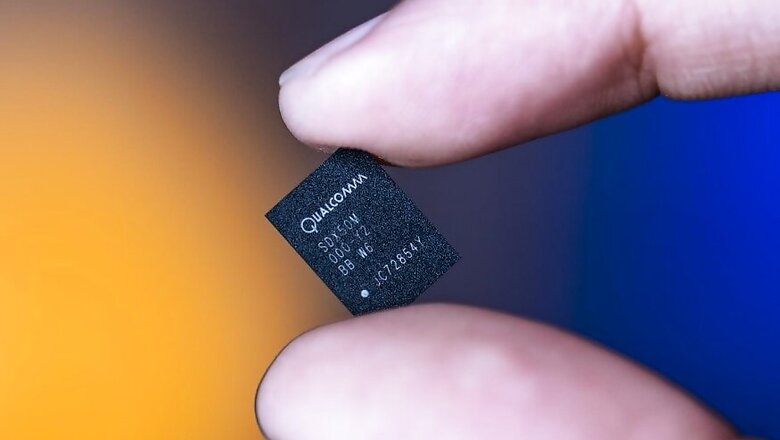
views
Qualcomm is pretty much a household name when it comes to chipsets and modems for mobile devices, including billions of smartphones worldwide. In fact, there is great expectation from the company’s upcoming Snapdragon X50 modem for smartphones, which is expected to kickstart the 5G revolution globally. But as things are, Qualcomm is exhibiting rather shabby behavior, when it comes to dealing with other tech companies. The long drawn legal battles with Apple in courtrooms worldwide have been well documented, as is the ongoing US Federal Trade Commission (FTC) vs Qualcomm trial playing out in another set of courtrooms. It was at the latter that another potential bombshell has dropped. It seems Qualcomm refused to give patent licenses to Samsung, and instead tried to sweeten the conversation with a "covenant to sue last." Samsung's Andrew Hong has testified during the proceedings that Qualcomm refused to give patent licenses to his company.
An email by a former Qualcomm president is a part of the trial, and it says, “[W]e were also asked for licenses by Intel and TI at a minimum, probably others (e.g., Samsung, Mediatek) as well, and we refused to enter into anything other than a non-exhaustive covenant (or covenant to sue last in the case of SS and MT).” This is confirmed by tech blog Foss Patents. “It's not safe because Qualcomm could at some point decide to simply sue the whole world and then we'll be hit like anybody else,” said Hong during the testimony.
As it turns out, one of the possible reasons for not allowing Samsung access to patents was that Qualcomm had reasons to believe that Samsung could become a competitor in the modem chip space within a year. Samsung was part of a potential joint venture with companies including NTT DoCoMo, called DragonFly. NTT DoCoMo already had licenses for certain Qualcomm patents. The arguments are around the standard essential patents, which define the technical standards of a product, and manufacturers need to have these ready.
Instead of giving them the patent, Qualcomm reportedly actually gave them a counter offer that it’ll not sue them for patent infringement until all of the other alleged infringers were dealt with first. The way things are progressing at the FTC vs Qualcomm trial, it could soon turn into Qualcomm against pretty much every other tech company out there. Qualcomm, over the years, has allowed brands such as Intel, Samsung and MediaTek to use its patents without a license feed. The smartphone makers in turn pay Qualcomm based on the sales of devices. The FTC alleges that this is how Qualcomm operates as a monopoly, and also accuses the chipmaker of charging Apple lower licensing fees so that the latter could exclusively use Qualcomm modem chips on iPhones launched between the years 2011-2016.
Also Read | Could Chinese Court Order Against iPhones Push Apple And Qualcomm Closer to a Settlement?




















Comments
0 comment